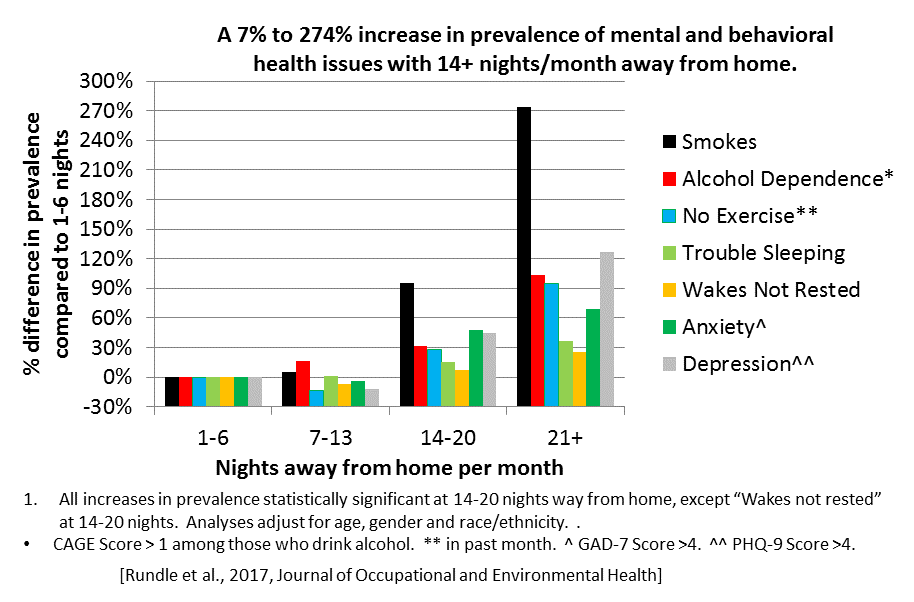 In new work, Rundle and colleagues find that extensive business travel is associated with poorer behavioral and mental health – smoking, sedentary behavior, trouble sleeping, alcohol dependence, depression and anxiety. The paper was recently published online at the Journal of Occupational and Environmental Medicine. This work follows up a prior paper showing that higher BMI, obesity prevalence and poor self-rated health were associated with extensive business travel.
In new work, Rundle and colleagues find that extensive business travel is associated with poorer behavioral and mental health – smoking, sedentary behavior, trouble sleeping, alcohol dependence, depression and anxiety. The paper was recently published online at the Journal of Occupational and Environmental Medicine. This work follows up a prior paper showing that higher BMI, obesity prevalence and poor self-rated health were associated with extensive business travel.
Even with the increasing sophistication of remote presence technologies such as conference calls and video chat, business travel is a prominent feature of many occupations and is likely to remain so. Although business travel can be seen as a job benefit and can lead to occupational advancement, there is a growing body of literature showing that business health is associated chronic disease health risks.
Rundle and colleagues found that mental and behavioral health declined with increasing nights spent away from home for business travel. Compared to employees traveling 1-6 nights/month for work, employees who traveled 14 or nights per month were significantly more likely to: smoke, report trouble sleeping, be sedentary and score above clinical thresholds for alcohol dependence, and mild or worse anxiety and depression symptoms. This cross-sectional study analyzed de-identified electronic medical record data for ~18,000 employed individuals who had taken part in preventative health screenings offered by EHE International, Inc.
These results are consistent with a World Bank study of its employees that found, compared to their non-traveling colleagues, employees who traveled for work had significantly higher medical insurance claims for all health conditions reviewed. The highest increase in health related claims was for psychological disorders, particularly the sub-category of stress-related disorders. Rundle and colleagues discus the need for the field of occupational travel medicine to bring more focus to the behavioral and mental health consequences of business travel and for employers to provide programs to help employees manage stress and maintain health while traveling for work.

